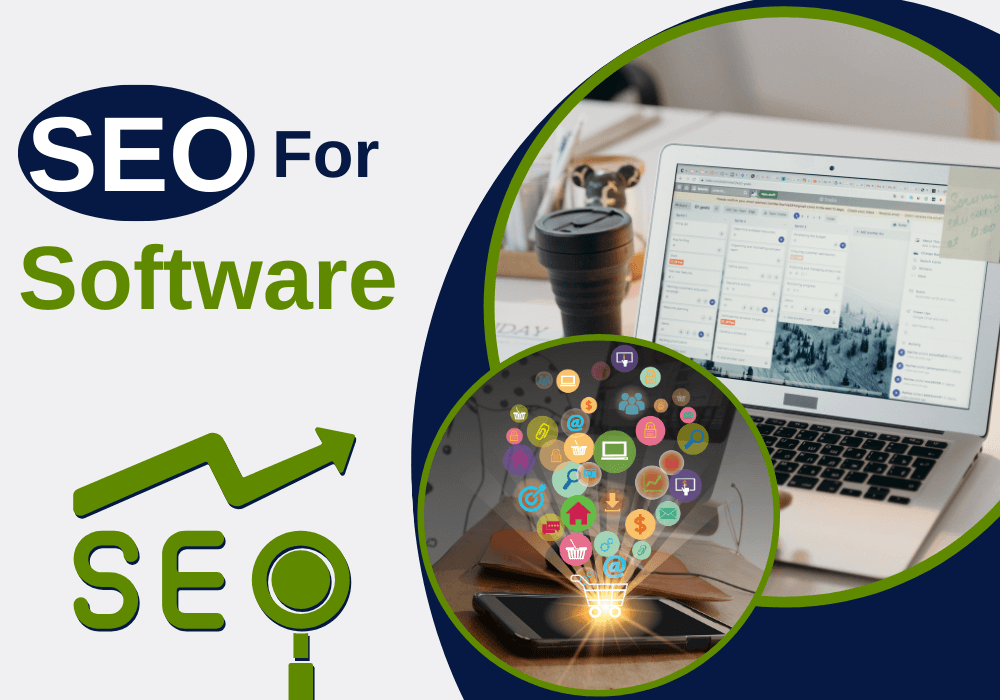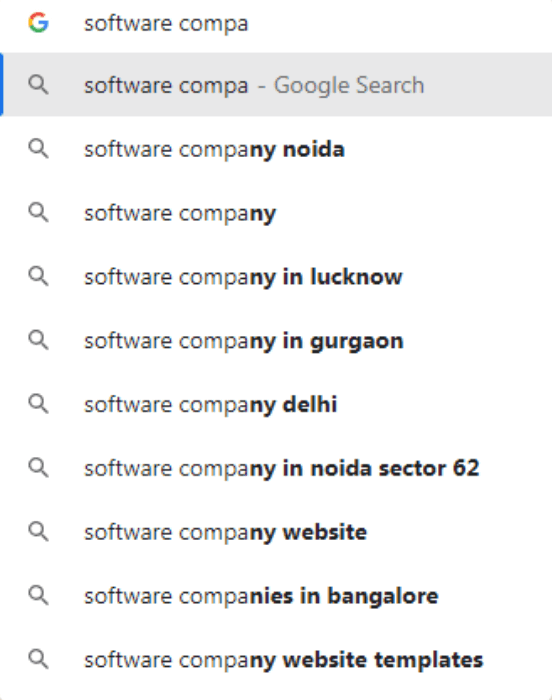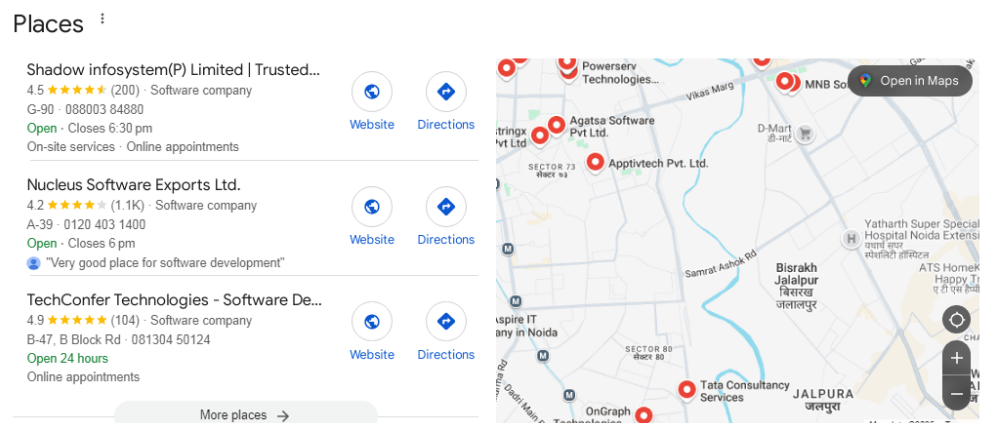
In today’s highly competitive digital landscape, visibility is everything—especially for software businesses aiming to stand out in a saturated market. Whether you’re a SaaS provider, enterprise software vendor, or custom software development firm, your potential clients are searching online before making decisions. That’s where SEO for software companies in India plays a transformative role.
Unlike traditional businesses, tech companies need to build credibility and authority not just around their brand but also around their technology. Since software buyers are often well-informed and technically savvy, they tend to rely heavily on search engines to research solutions, compare features, and read user reviews before converting. Having a solid software SEO strategy ensures that your business appears right where it matters—on the first page of Google when potential customers are actively searching for your offerings.
From lead generation and product discovery to nurturing decision-makers over a longer sales cycle, SEO for tech companies in India provides an organic, cost-effective way to build consistent growth and long-term digital presence.
Understanding the Target Audience
Before diving into technical optimizations or content strategies, the foundation of any effective SEO for software agency in India (or globally) lies in understanding your target audience.
B2B vs. B2C Software Buyers
The SEO approach differs greatly depending on whether your software is targeted at businesses or end-users. B2B software companies typically market to a chain of decision-makers—CTOs, IT managers, procurement officers—while B2C software firms focus on individual users or small teams. Understanding the customer journey and search behavior of each persona is crucial in building high-converting content.
Buyer Intent & Pain Points
Modern SEO is all about solving problems. A successful software SEO service will map out your audience's pain points and align content with their search intent. For instance:
- Someone searching “best project management tool for remote teams” is likely in the consideration stage.
- A query like “how to manage sprint backlogs” indicates early-stage research.
Addressing these questions through informative blog posts, comparison pages, and use-case content helps move prospects further along the funnel organically.
Geographical Targeting
If you're a software agency in India, you may want to target domestic clients as well as global customers. Understanding regional language preferences, buyer behavior, and search trends allows you to tailor SEO strategies accordingly. This includes using keywords like “ERP software company in India” or “custom CRM development India” where appropriate.
So what are you waiting for the world is out there waiting for your business. Start acting Global!
Keyword Research for Software Companies
Keyword research is the cornerstone of any successful SEO strategy for software companies. It goes beyond finding high-volume terms—it's about identifying the right terms your ideal customers are actually searching for.
Finding Relevant Keywords
Use tools like Ahrefs, SEMrush, or Google Keyword Planner to uncover a mix of:
- Core service keywords: “CRM software for small business,” “SaaS product development,” “custom software company India”
- Feature-based keywords: “automated invoice generation,” “cloud-based analytics tool”
- Problem-solution keywords: “how to streamline sales reporting,” “track customer interactions automatically”
You’ll also want to identify long-tail keywords, which often have lower competition and higher intent. These can include:
- “Best inventory management software for retail stores”
- “SEO for tech companies targeting fintech solutions”

On-Page SEO for Software Websites
On-page SEO plays a vital role in optimizing your website for search engines and users. For software companies, this means structuring each page to clearly communicate your value proposition, highlight your product features, and guide potential leads through an informative and frictionless journey.

-
Title Tags & Meta Descriptions
These are the first elements users see in the search engine results. Make sure each title tag is unique, includes a target keyword like “CRM software for small teams,” and accurately reflects the page content. Meta descriptions should be compelling and highlight your core offering. Header Tags (H1, H2, H3)
Use clear and structured headers to guide both users and search engines. For example, if you're offering accounting software, break down your content into sections like “Core Features,” “Benefits for Startups,” and “Integration with Payment Gateways.”URL Structure
Clean, descriptive URLs perform better for both SEO and usability. For instance: /project-management-software/features is better than /page?id=2456.
Keyword Placement
Naturally incorporate keywords like SEO for tech companies or custom software development SEO in content, headers, alt text for images, and internal links—without overdoing it.Optimizing Product & Service Pages
Your product and use-case pages should be rich in information. Include comparison tables, user testimonials, CTAs for demos or free trials, and FAQs to improve engagement and dwell time.
Internal Linking Strategy
Link to relevant blog posts, feature pages, and support documents to help both users and search engines navigate your site more effectively.Schema Markup
Implement schema.org tags like Product, FAQ, Review, and SoftwareApplication to enhance search appearance with rich snippets.
Technical SEO for Software Sites
Technical SEO ensures your site is crawlable, indexable, and performs well across devices. For fast-paced software companies and SaaS providers, site performance directly affects user retention and lead generation.
Essential Technical SEO Components:
- Website Speed
A delay of even one second can lead to lost conversions. Use tools like Google PageSpeed Insights to optimize loading time—compress images, use a content delivery network (CDN), and minify code.

- Mobile Responsiveness
Many users research software solutions on the go. Your site must be mobile-optimized with responsive layouts and easy-to-navigate menus. - SSL & HTTPS
Search engines favor secure websites. Always ensure your platform uses HTTPS to protect user data and maintain trust.
- Crawlability & Indexation
Use robots.txt and XML sitemaps correctly. Regularly audit your site with tools like Screaming Frog or SEMrush Site Audit to find and fix broken links, duplicate content, and orphan pages. - Core Web Vitals
Google now considers metrics like Largest Contentful Paint (LCP), First Input Delay (FID), and Cumulative Layout Shift (CLS) in its ranking algorithm. Optimizing for these improves user experience and rankings.
For a software SEO agency in India catering to both local and global clients, ensuring your site meets international standards (like multilingual support, global CDN usage, and language-specific sitemaps) can be a big competitive edge.
Content Strategy for Software SEO
Content is the heart of any effective SEO for software in India. It not only helps you rank higher in search results but also educates your users, builds trust, and supports the buyer journey.
Types of Content That Perform Well:- Product-Focused Blog Posts
Share insights about your software, compare it with alternatives, or offer how-to guides. For example: “How Our CRM Software Helps Remote Teams Stay Aligned.” - Case Studies
Showcase how your software solved real problems for clients. Case studies with measurable results appeal strongly to B2B decision-makers. - Whitepapers & Ebooks
Great for lead generation. Create downloadable assets on relevant topics like “AI Trends in SaaS Development” or “10 Things to Consider Before Choosing an ERP Solution.” - Tutorials & How-To Guides
These help capture informational keywords. For example, “How to Automate Invoice Generation Using Our API.”

Content Funnel Alignment:
Structure your content according to your buyer journey:
- Top of Funnel: Educational blogs, industry news, beginner’s guides
- Middle of Funnel: Feature breakdowns, comparison pages, FAQs
- Bottom of Funnel: Demos, customer testimonials, pricing pages
Consistently publishing high-quality, keyword-optimized content boosts authority and positions you as a leader in the software domain.
So what are you waiting for the world is out there waiting for your business. Start acting Global!
Link Building and Digital PR for Software Companies
Backlinks remain a strong ranking factor in SEO, but the game has evolved. For software SEO services, earning high-quality links from reputable sources in the tech space is essential to improve domain authority and visibility.
Effective Link-Building Techniques:
- Guest Blogging
Contribute thought leadership content to industry blogs, startup publications, or developer communities. Focus on sharing value—not just inserting links. - Tech Directories & Review Platforms
Get listed on platforms like:- G2
- Capterra
- Clutch
- SoftwareSuggest
These sites rank well and are commonly used by decision-makers during software research.
- Influencer & Community Engagement
Partner with niche tech influencers on LinkedIn or YouTube. Also, actively participate in communities like Reddit, Stack Overflow, and GitHub. - Digital PR Campaigns
Launch newsworthy content—product launches, industry reports, funding announcements—and distribute them through PR channels to attract mentions and authority backlinks. - Broken Link Building & Competitor Analysis
Use tools like Ahrefs to find broken backlinks on related sites and suggest your content as a replacement. Also, identify where your competitors are earning links and try to replicate or improve on those strategies.
For any SEO for tech companies, link-building is not just about quantity but relevance and trust. A few links from respected sources in your niche can have more impact than dozens from unrelated sites.
Local SEO for Software Agencies in India
While many software businesses aim for global reach, local SEO can be a powerful growth lever—especially for a software agency in India looking to attract regional startups, SMEs, or even large enterprises.
Why Local SEO Matters:
Even in a digital-first industry, clients often prefer working with nearby vendors for easier communication, timezone alignment, and trust. Ranking high in local searches like “software development company in Bangalore” or “ERP software agency in Pune” can bring you high-intent leads ready to engage.

Measuring SEO Success for Software Companies
Once your software SEO strategy is live, it’s essential to measure performance to track ROI and refine tactics. SEO is not just about rankings—it’s about leads, engagement, and conversions.

- Organic Traffic Growth
Monitor how many users are landing on your website via search engines. Use Google Analytics and Google Search Console to see keyword performance and traffic trends. - Keyword Rankings
Track your position for strategic keywords such as “project management SaaS India” or “AI software development services.” Tools like SEMrush or Ahrefs are perfect for this. - Bounce Rate & Time on Page
A high bounce rate on product pages or blogs could indicate mismatched intent or content gaps. Use this data to improve UX and content alignment.
- Conversion Rate from Organic Search
Identify how many visitors from search engines are converting into demo bookings, trial sign-ups, or form submissions. This is one of the most important KPIs for software SEO services in India. - Backlink Profile
Evaluate the number, quality, and relevance of websites linking to you. Aim to grow your backlink profile month-over-month from industry-specific domains. - Technical Health Score
Regular SEO audits will help you track the number of issues related to crawlability, broken links, mobile usability, page speed, etc.
Common SEO Mistakes Software Companies Make
Even with the best intentions, software companies often fall into some common SEO traps that hinder their visibility and lead generation efforts.
Frequent Pitfalls to Avoid:
- Targeting Only Broad, High-Volume Keywords
Terms like “project management software” are incredibly competitive. Without targeting specific, long-tail keywords (e.g., “agile project management tool for startups”), you’ll struggle to rank or attract the right traffic. - Neglecting Technical SEO
Many fast-growing tech companies invest in beautiful UIs but forget SEO fundamentals like mobile-friendliness, site speed, or structured data—leading to poor rankings. - Duplicated or Thin Product Pages
Every product or feature page must have unique, detailed content. Reusing the same descriptions across pages (or subdomains) dilutes SEO strength. - Ignoring User Intent
Optimizing pages for what you think people want rather than what they’re actually searching for results in poor engagement. SEO content must align with real search behavior. - No Strategy for International or Local SEO
Software companies with global ambitions often forget to structure content for different markets. Similarly, local firms overlook location-based strategies that could help them dominate regionally. - Neglecting Ongoing SEO Maintenance
SEO isn’t a one-time job. Failing to regularly update content, fix errors, and track competitors can lead to declining performance over time.
Choosing the Right SEO Partner for Your Software Business
Whether you’re a bootstrapped SaaS startup or an established enterprise software vendor, working with the right SEO agency can fast-track your success. But not every agency understands the nuances of SEO for software in India.
What to Look for in a Software SEO Partner:
- Industry Experience
Choose an agency that has worked with software or tech brands before. They’ll better understand your buyer journey, product complexity, and long sales cycles. - Customized Strategy
Avoid cookie-cutter SEO packages. Your agency should offer tailored solutions—whether you're targeting a niche like fintech, HR tech, or enterprise SaaS. - Full-Funnel SEO Approach
The right partner will cover everything from technical audits and keyword research to content strategy, link building, and conversion optimization. - Transparent Reporting
Your agency should share regular reports tracking key KPIs, wins, and areas of improvement—empowering you to make informed marketing decisions. - Reviews & Case Studies
Look for testimonials or success stories from other software companies. This builds trust and showcases the agency’s real-world impact.
If you're looking for an SEO company in India who understands tech and can drive measurable ROI, a specialized SEO agency for software companies in India will give you a major advantage over generic digital marketing firms.
So what are you waiting for the world is out there waiting for your business. Start acting Global!
Link Building Strategies for Software Companies
Effective link building is one of the most powerful aspects of SEO for software companies, as it improves domain authority and enhances trust signals in Google’s algorithm. For software businesses—especially in the B2B space—earning high-quality backlinks from authoritative sources within the tech niche is crucial.
Some proven link building strategies include:
- Guest blogging on respected tech platforms and software review sites like G2 or TechCrunch.
- Getting featured in product comparison lists, such as “Top 10 Project Management Tools,” which attract both backlinks and referral traffic.
- Digital PR campaigns promoting your innovations, case studies, or success stories to media outlets.
- Creating link-worthy assets like research reports, industry trend studies, or technical whitepapers.
- Leveraging HARO (Help a Reporter Out) to contribute expert opinions in exchange for backlinks from top publications.
Additionally, internal linking across your software website—especially from blogs to key service pages—helps distribute link equity and improves the crawlability of your site.
Technical SEO Essentials for Software Websites
No matter how compelling your content is, if your website doesn’t follow technical SEO best practices, it will struggle to rank. For software companies, especially those offering cloud-based platforms or SaaS products, technical performance is directly tied to brand perception and user trust.
Key technical SEO elements include:
- Website speed optimization through image compression, code minification, and caching.
- Ensuring mobile responsiveness since most users now browse software options on mobile devices.
- Having clean XML sitemaps and well-structured robots.txt files to guide search engine crawlers.
- Securing the website with HTTPS, especially if users log in, store data, or make purchases.
- Adding schema markup for reviews, FAQs, or software features to enable rich results in search listings.
- Monitoring and fixing crawl errors using tools like Google Search Console.
An optimized technical foundation ensures better indexing, faster load times, and reduced bounce rates—critical elements for software SEO services to succeed.

Mobile SEO for Software Platforms
With mobile-first indexing now standard in Google’s algorithm, optimizing your software website for mobile devices is essential. This is especially relevant for businesses looking to attract tech-savvy users or B2B decision-makers who research on the go.
A solid mobile SEO strategy includes fast-loading pages, a responsive design that adapts to various devices, and easy-to-navigate interfaces. Interactive elements like demos, CTAs, and contact forms should be touch-friendly and fully functional across screen sizes.
Also, mobile-friendly content should be concise, scannable, and well-organized using headings, bullets, and collapsible sections. You should also consider optimizing for voice search, especially for mobile queries like “best CRM software for small business in India” or “top ERP solution for startups.”
SEO for SaaS Companies vs. Traditional Software Companies
While both fall under the tech industry, SEO for SaaS companies and traditional software businesses requires tailored approaches. Understanding these distinctions helps in crafting the right content, targeting the correct audience, and optimizing funnel-specific keywords.
For SaaS businesses, the focus is often on:
- Generating leads through CTAs like “Start Free Trial” or “Request a Demo.”
- Ranking landing pages for product features and use-case-specific queries.
- Leveraging case studies, customer testimonials, and comparison pages.
In contrast, traditional software companies selling licensed products may emphasize:
- Detailed guides on setup and compatibility.
- Downloadable documentation and support resources.
- SEO-optimized blog content addressing long-term software maintenance or integration.
An experienced SEO for software agency in India can assess your product model and tailor the SEO plan accordingly to target intent-driven users across each phase of the buyer’s journey.
Future Trends in SEO for Tech Companies
The future of SEO for tech companies is driven by innovation, user experience, and machine learning. Staying ahead of algorithmic changes and leveraging new tools is key to long-term growth.
- AI-driven SEO platforms like Surfer SEO and Clearscope help in content creation and optimization.
- Voice search is becoming a significant factor, especially for mobile and smart assistants.
- E-E-A-T (Experience, Expertise, Authoritativeness, Trustworthiness) continues to play a major role in ranking. Showcasing founder credentials, certifications, and real reviews helps build credibility.
- Building topical authority by covering core subject clusters rather than targeting isolated keywords.
- Video content—such as tutorials, demos, or software walkthroughs—adds engagement and helps rank on both Google and YouTube.
Keeping up with these trends ensures your SEO strategy remains effective and future-proof, especially in the fast-evolving software sector.

Conclusion: Power Your Growth with SEO for Software Companies
Investing in SEO for software companies is no longer optional—it’s a key component of sustainable digital growth. Whether you’re a SaaS startup or an enterprise-grade software agency, strategic SEO can help you attract highly qualified traffic, reduce reliance on paid ads, and dominate search results over time.
With a mix of keyword-optimized content, authoritative link building, strong technical performance, and a focus on the user experience, your business can rise above the competition. If you’re seeking reliable software SEO services in India, partnering with an experienced SEO for software agency in India can give you the edge you need in today’s global tech market.
So what are you waiting for the world is out there waiting for your business. Start acting Global!

Do You Have Any Questions?
Our Clients































